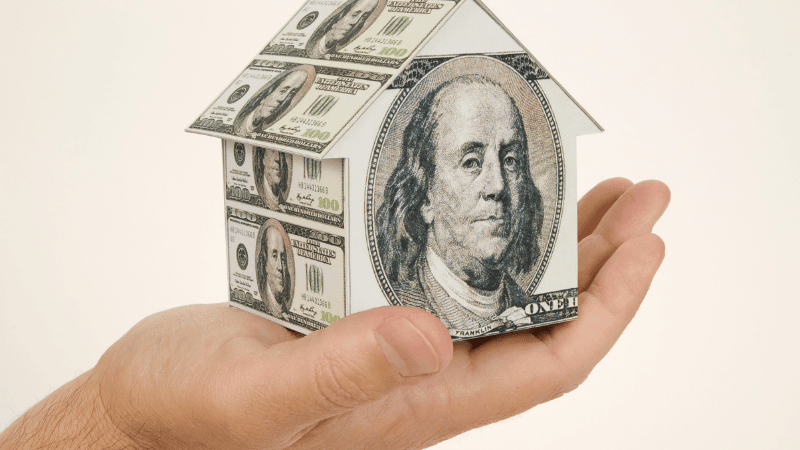Get Expert Financing
- Matched with investor-friendly lenders
- Fast pre-approvals-no W2s required
- Financing options fro rentals, BRRRR, STRs
- Scale your portfolio with confidence
Reverse mortgages are an invaluable tool for many seniors who want to access their long-earned home equity to supplement their retirement income.
But how do you pay back a reverse mortgage? Do you have to pay back these loans at all?
In this article, we will demystify the process of repaying a reverse mortgage and provide strategies for doing so efficiently.
Speak with a reverse mortgage expert.A reverse mortgage is a particular type of home loan that gives U.S. homeowners aged 62 or older the ability to convert home equity into cash and not have to make a monthly payment (unless they want to).
The benefit of a reverse mortgage is that it doesn’t require monthly payments as long as the borrower still lives in the home.
There are, however, some circumstances where the reverse mortgage becomes due and payable, in which case someone will have to pay it back.
The circumstances:
If one of these situations should occur, seniors and their families may not know there are several ways to pay back a reverse mortgage.
The method you choose to pay back your reverse mortgage will greatly depend on your financial situation and goals. The following are the various options for repaying the loan, along with their advantages and disadvantages.
One common way to pay back a reverse mortgage is through the sale of your home.
When the loan becomes due, you or your heirs will typically sell the property and use the sale funds to pay off the loan balance.
This option is particularly beneficial if your home’s value has appreciated since you took out the reverse mortgage. In this case, the sale may generate enough money to cover the loan balance and still leave you or your heirs with a profit.
However, if the property value has decreased, the sale may not be sufficient to repay the loan in full. In this scenario, you or your heirs would be responsible for any remaining balance.
Another way to pay back a reverse mortgage is by refinancing the loan. This can be done in two ways:
If you have an existing reverse mortgage—it could be worth it to find out if your home value has increased. An increase in value means you might be eligible for a refinance loan for a new reverse mortgage.
A new reverse mortgage can provide you with additional funds and possibly a lower interest rate.
Keep in mind that refinancing a reverse mortgage means paying closing costs and fees, just like with your initial reverse mortgage.
If your financial situation has evolved and you no longer need the income from the reverse mortgage, you may consider refinancing into a traditional mortgage or a home equity loan.
This option would require you to start making monthly mortgage payments again, but it might be a good option if you can afford new payments and want to build greater equity in your home.
See if you can qualify for a reverse mortgage.Your heirs (after you move out or pass away) have the option to pay off the reverse mortgage loan balance. They can do this using their own funds or by obtaining a new mortgage on the property.
This pathway allows your heirs to keep the property and potentially benefit from any future appreciation in its value.
However, if your heirs are not positioned financially to make mortgage payments or do not wish to take on the responsibility of homeownership, it may not be a viable choice. Make sure everyone involved communicates clearly to get everyone on the same page.
If you or your heirs cannot or do not want to repay the reverse mortgage balance, you have the option to forfeit the home to the lender. In this scenario, the lender will sell the property to recoup the loan balance.
While this option relieves you or your heirs of the responsibility of repaying the loan, it also means that you will lose any remaining equity in the home.
Although monthly mortgage payments are not required with a reverse mortgage, borrowers are given the option to make voluntary payments in order to reduce the loan balance.
This strategy can be effective if you want to preserve equity in your home for yourself or your heirs.
By making voluntary payments, you can pay down the principal balance—which will also reduce the amount of interest accrued over time. This option might help you pay off the reverse mortgage more efficiently and potentially save money in the long run.
Reverse mortgages are often valuable financial tools for seniors, but it’s essential to understand how the repayment process works and to have a plan in place to resolve the loan efficiently.
By exploring your options, such as refinancing and working with your heirs, you can make the most of your reverse mortgage and feel confident in your financial decisions.
See if a reverse mortgage is the right option for you.Our advice is based on experience in the mortgage industry and we are dedicated to helping you achieve your goal of owning a home. We may receive compensation from partner banks when you view mortgage rates listed on our website.
